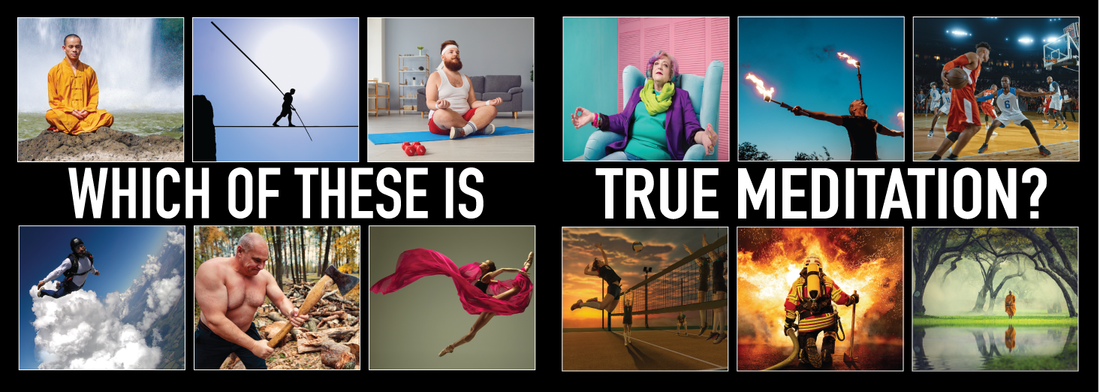All of them.
Meditation is a buzzword to people in the modern world, but it’s often misunderstood. When I was much younger I thought of meditation as a spiritual practice, but I was mistaken in that assumption.
Meditation is an intellectual practice; it is a practice in which we are trying to separate our minds into two specific components. The first component is the thought processor, and the second component is the thinker who is observing the thoughts. The thinker is just pure consciousness. Is the part of us that can watch ourselves think, laugh at the thoughts, and judge them if we choose to.
Meditation is the practice of concentration and focus. It is ideally done in a seated position in stillness, but physical stillness isn’t always a requirement. If a person is easily distracted then they can engage in meditation as they walk, as long as they direct their concentration and their focus on a single thought such as their breath or their footsteps. Or their focus can be solely directed on whatever is happening in the present moment they’re in.
The purpose of meditation is to be able to control your mind to the degree of not allowing it to drift frequently. When your mind drifts, it causes you to be a victim of your own reactions to things that happen in the outside world. When you’re constantly reacting to the way that you think and feel then it can be quite distracting.
Such distraction is a source of unhappiness for many people. And we can’t change negative thinking into positive thinking if we don’t practice the solution for changing that negative thinking.
The advanced purpose of meditation can be to sit in union with creation, but this is a lofty goal. Some may not see such a goal as being compatible with their religious beliefs, and if so they may choose to meditate solely for the significant short-term self-improvement benefits that meditation offers.
Those who do elect to pursue the goal of union with creation should expect that it will take time to free themselves from their various attachments. In such a situation, it’s necessary to see truth as being whatever is happening in the present moment. Setting your intention in your meditation to be engaged in present moment focus is very valuable; as valuable what occurred when monks sat underneath lotus trees, contemplated enlightenment, and found it.
No one is to judge whether or not your form or practice of meditation is correct. But a result that everyone should strive for in meditation should be peace of mind. Not all people who engage in meditation will have the intellect to find deeper and deeper knowledge of the inner workings of their own mind or of the universe. It may be debatable whether or not information about the workings of the universe is of value, but being able to better deal with the present moment unquestionably is.
In this present moment I am dancing. I can feel my body, and I can feel its sensations. I am happy and blissful because I have my senses and I am experiencing them. Those things are sufficient rewards for me for my own practice of meditation.
Some people might strive for more than that in their meditation practices, though. They might want to enhance their consciousness and subsequently develop the presence of mind to write a beautiful song. Some people might want to obtain the awareness that will enable them to teach others about solutions to end pain and suffering. And others might want to meditate just to relax and clear their heads.
Here’s a valuable tip: Whatever activity you’re going to engage in, if you say to yourself “I am meditating” beforehand then you will get the benefits of meditation as you participate in the activity. But whatever your individual goals are, begin the practice of meditation today and get closer to reaching them.
